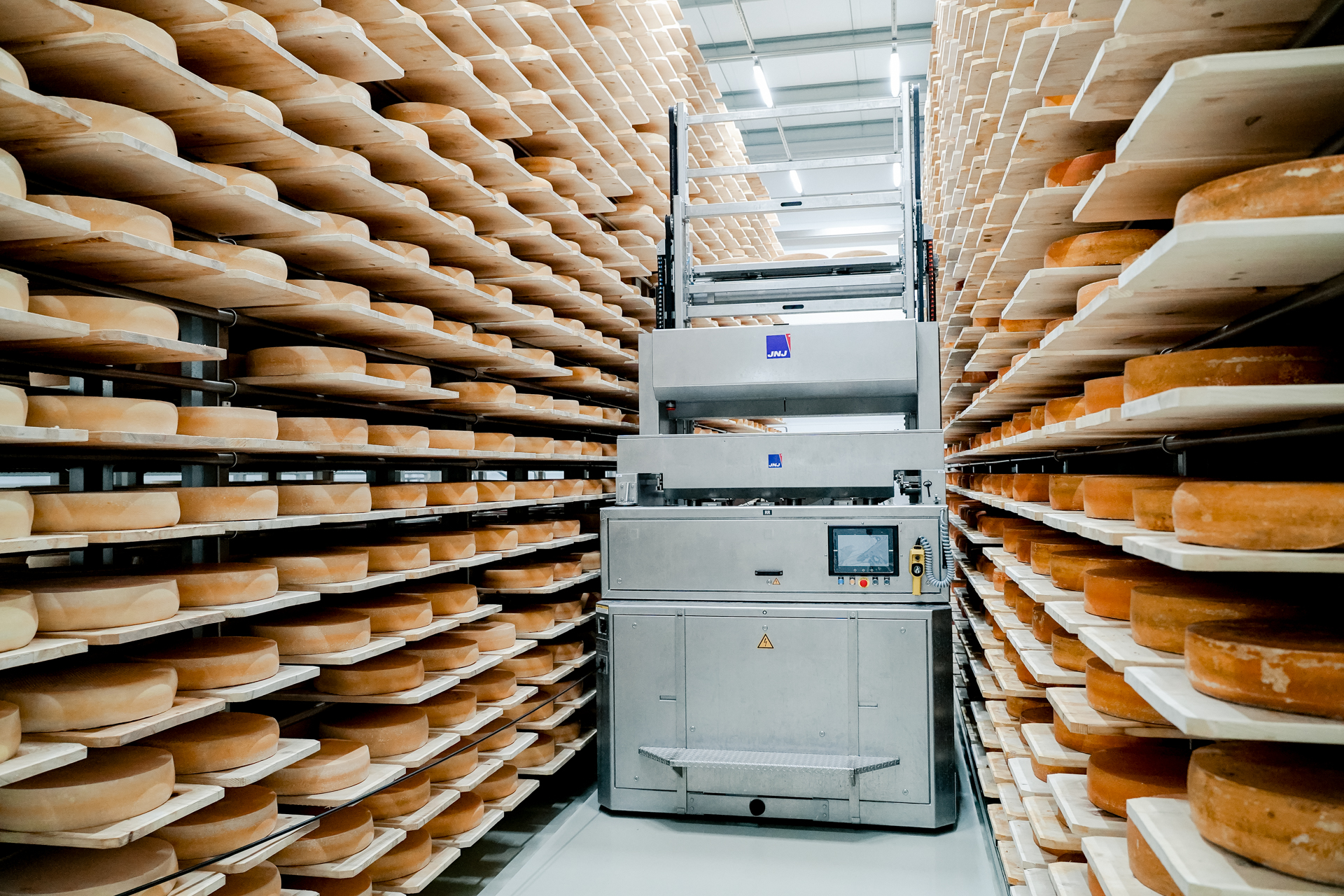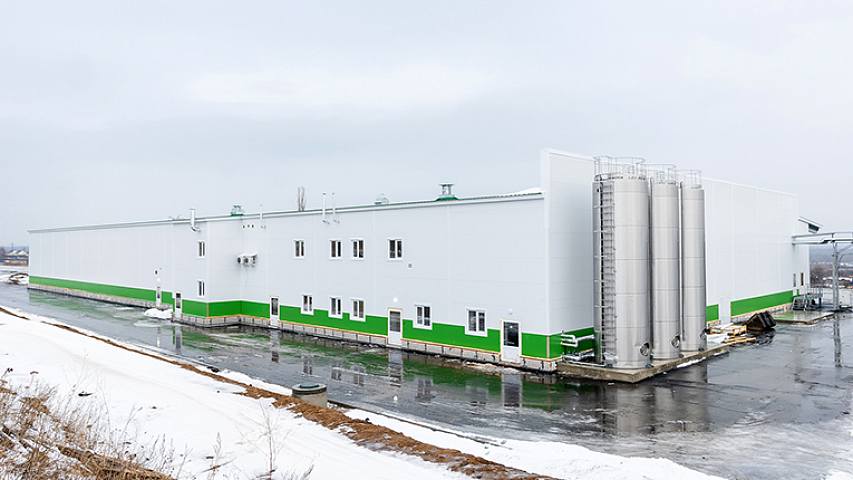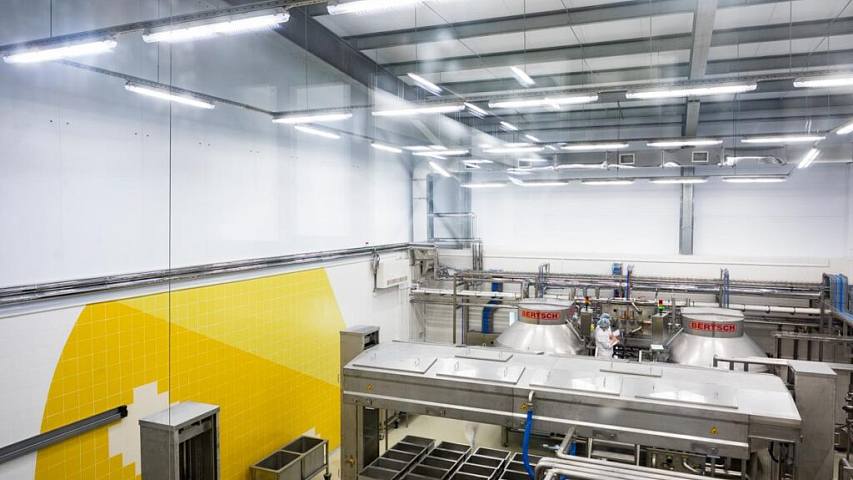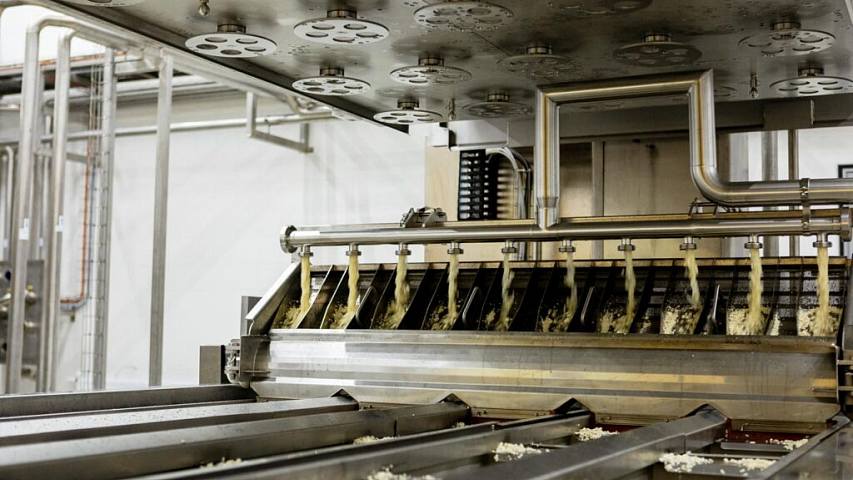A new milestone in cheese making
12 August 2021 News from the Company
In the village of Shchuche (Voronezh region), the EkoNiva cheese factory with capacity for 60 tons of raw milk per day was recently put into operation. The first test batch of cheese took place in mid-January.

Once the plant reaches its full production capacity, the daily output will amount to four tons of semi-hard and two tons of hard cheeses. Semi-hard cheeses of Dutch and Russian types are made using two major methods. In liquid filling, the mixture of cheese grains and whey is poured into the molds. The effect of external factors on the cheese grain is minimized. In curd filling, part of the whey is removed from the cheese grain. Because of moisture removal, the cheese dough becomes porous and develops small holes. The first semi-hard cheeses left the plant at the end of March. Hard cheeses are also made in the cheese factory.
‘Our hard cheeses range is of mountain cheese type’, notes Aleksey Prostyakov, Manager of Shchuche cheese plant. ‘We use Brevibacterium Linens, or red mould, which imparts the unique full-bodied flavor to our cheese. The maturation of our hard cheese takes three months, sometimes longer.’
A team of qualified specialists monitors the entire production process: they carry out cheese maturity tests, set all the required parameters and make adjustments on the go. Special rooms are provided for the ripening of the cheese, equipped with air-conditioning technology from the French manufacturer CLAUGER. The plant also uses technology from the European industry leader Bertsch.
‘Bertsch designs and manufactures complete process equipment solutions of the highest quality’, continues Aleksey Prostyakov. ‘The machinery fully meets our production and economic needs. A Bertsch specialist is currently on site training our employees the basics of equipment operation and maintenance.’
The milk used for cheese making comes from Bodeyevka dairy located near the processing plant. Based on the comprehensive quality evaluation comprising 29 indicators, the raw milk from this dairy is best suited for cheese production. One of the key benefits cited by the technologists is that it is high in protein and fat.
‘Our requirements for raw milk quality are even more stringent than those of the State Standard for the highest grade product’, comments Karolina Vasilyeva, Head of Milk Quality Сontrol Department at EkoNiva-APK Holding. ‘Our milk quality indicators also include our own parameters, which we cannot disclose because they are trade secrets. The main parameters for our milk are the following: protein content no lower than 3.5%, casein level above 2.6% and fat content above 3.5%.’
The quality of milk depends on a number of factors, some of them not quite obvious. For example, the cow milking procedure. At EkoNiva facilities, the cows are milked in rotary milking parlors without causing much stress to the animals, which makes EkoNiva milk delectable and full of healthy nutrients.
‘The operators of our milking machines have been trained to ensure stress-free environment for the cows’, says Karolina Vasilyeva. ‘We continuously work with the staff to ensure consistently high quality of cheese milk at Bodeyevka dairy.’
In a few months, the cheese will also be delivered to the major retail chains in Russia, so all cheese lovers will have the chance to taste the high-quality product made from natural milk.



